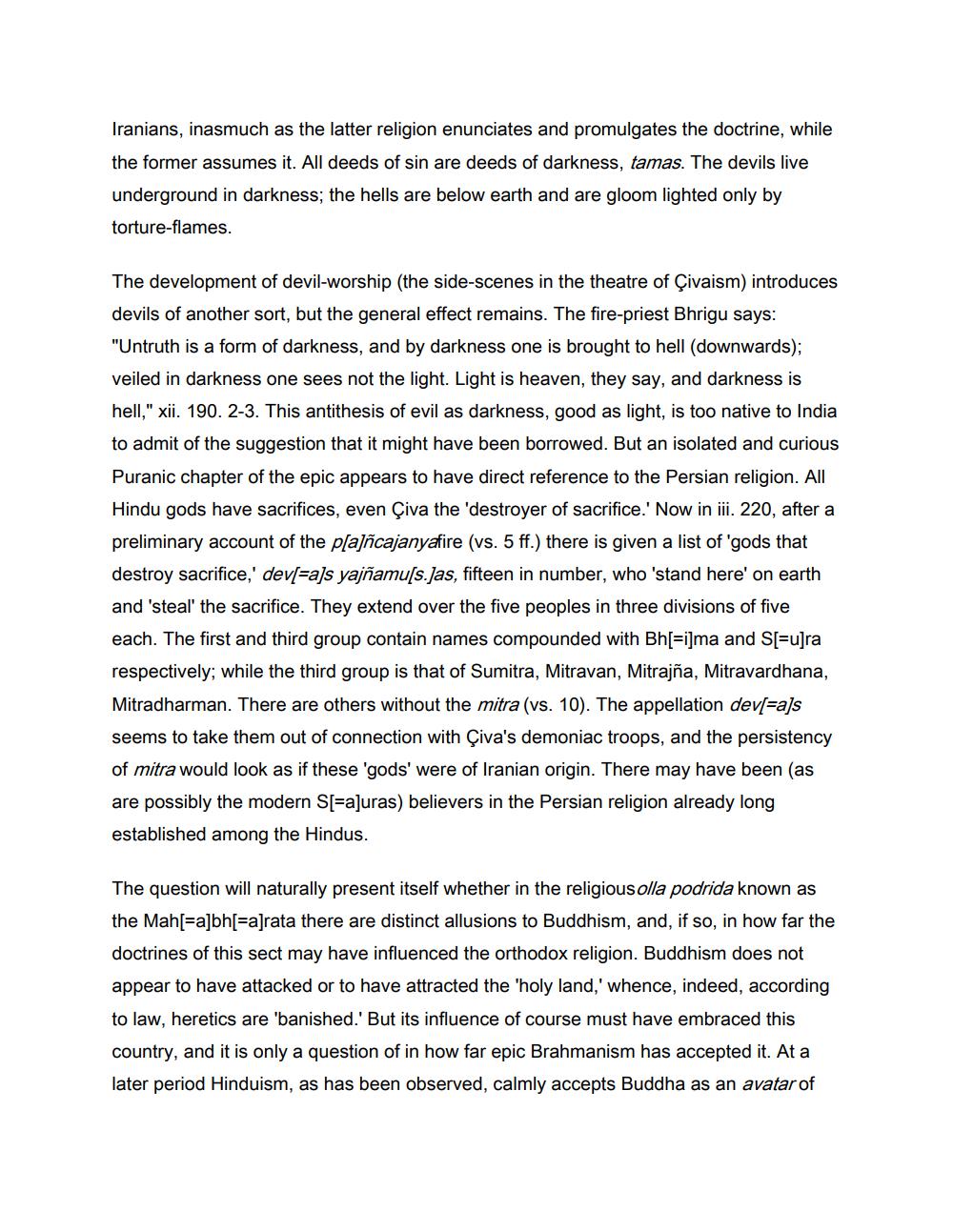________________
Iranians, inasmuch as the latter religion enunciates and promulgates the doctrine, while the former assumes it. All deeds of sin are deeds of darkness, tamas. The devils live underground in darkness; the hells are below earth and are gloom lighted only by torture-flames.
The development of devil-worship (the side-scenes in the theatre of Çivaism) introduces devils of another sort, but the general effect remains. The fire-priest Bhrigu says: "Untruth is a form of darkness, and by darkness one is brought to hell (downwards); veiled in darkness one sees not the light. Light is heaven, they say, and darkness is hell," xii. 190. 2-3. This antithesis of evil as darkness, good as light, is too native to India to admit of the suggestion that it might have been borrowed. But an isolated and curious Puranic chapter of the epic appears to have direct reference to the Persian religion. All Hindu gods have sacrifices, even Çiva the 'destroyer of sacrifice.' Now in iii. 220, after a preliminary account of the p[añcajanyafire (vs. 5 ff.) there is given a list of 'gods that destroy sacrifice,' dev[=as yajñamu/s.Jas, fifteen in number, who 'stand here' on earth and 'steal the sacrifice. They extend over the five peoples in three divisions of five each. The first and third group contain names compounded with Bh[=i]
ma and S[=u]ra respectively; while the third group is that of Sumitra, Mitravan, Mitrajña, Mitravardhana, Mitradharman. There are others without the mitra (vs. 10). The appellation dev[=als seems to take them out of connection with Çiva's demoniac troops, and the persistency of mitra would look as if these 'gods' were of Iranian origin. There may have been (as are possibly the modern S[=a]uras) believers in the Persian religion already long established among the Hindus.
The question will naturally present itself whether in the religious olla podrida known as the Mah[=a]bh[=a]rata there are distinct allusions to Buddhism, and, if so, in how far the doctrines of this sect may have influenced the orthodox religion. Buddhism does not appear to have attacked or to have attracted the "holy land,' whence, indeed, according to law, heretics are 'banished.' But its influence of course must have embraced this country, and it is only a question of in how far epic Brahmanism has accepted it. At a later period Hinduism, as has been observed, calmly accepts Buddha as an avatar of




